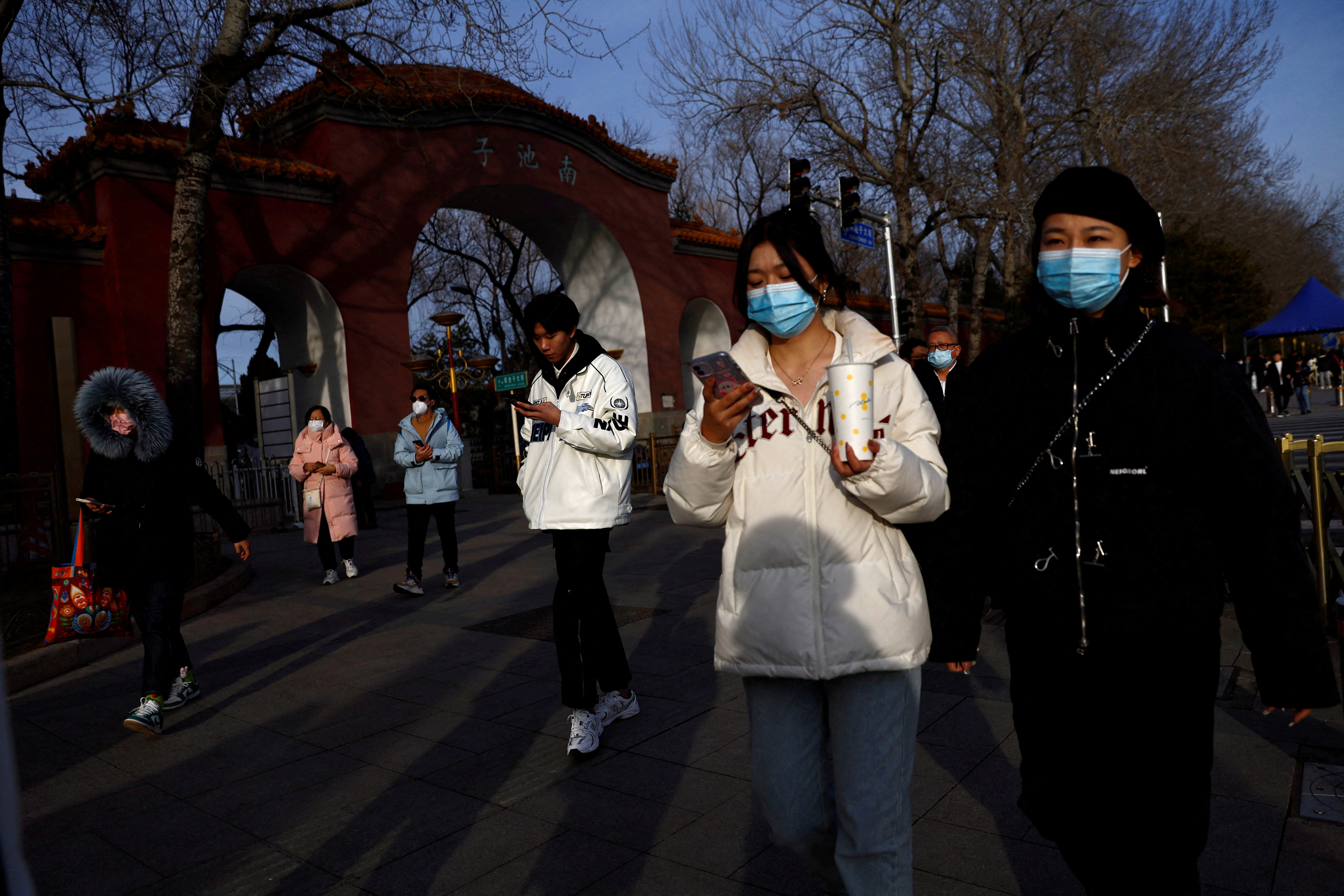
People walk on the street in Beijing, China on February 14, 2023, wearing face masks to prevent the coronavirus disease (COVID-19). REUTERS/Tingshu Wang/File Photo Get license rights
LONDON, Nov 23 (Reuters) – Leading scientists urged caution on Thursday over fears of another pandemic after the World Health Organization requested more information from China on rising respiratory illnesses and pneumonia clusters among children.
“We have to be careful,” said Marian Koopmans, a Dutch virologist who has advised the WHO on COVID-19. “We really need more information, especially diagnostic information.”
Concerns were first sparked internationally by an alert issued Tuesday by the ProMED surveillance service, part of the International Society for Infectious Diseases. It called for more information on “Undiagnosed Pneumonia – China (Beijing, Liaoning)”.
The standard wording of the warning echoed the first notification of what turned out to be Covid-19, sent on December 30, 2019: “Undiagnosed pneumonia – China (Hubei).”
Scientists said the similarity of the two alerts fueled yet more unfounded concerns that the outbreak could be caused by another emerging pathogen that could trigger a pandemic. Based on the information available so far, other common respiratory infections such as influenza are more likely to increase, as seen in many parts of the world after the lifting of Covid lockdowns, they said. It could also signal a resurgence of COVID.
WHO always requests information from countries when undiagnosed or unknown diseases are reported, which happens regularly. However, it doesn’t always issue a press release about doing so, as it did on Wednesday.
Brian McCloskey, a public health expert who advised the WHO on the pandemic, said: “What we’re looking at is the WHO’s International Health Regulatory Framework”, which sets out the rules governing how countries work with the WHO on potential outbreaks.
“I’m not going to push the pandemic panic button based on what we know so far, but I’ll be very interested to see the response from China to the WHO, followed by the WHO’s assessment,” he said.
Both the WHO and China faced questions about transparency in the early days of COVID. The WHO has criticized China for withholding data on infections and deaths, as well as data on the origin of the epidemic, as it lifted its “zero-Covid” measures.
China has 24 hours to respond to the WHO under the terms.
But some said it was unclear whether the claimed illnesses were actually undiagnosed. The story that inspired ProMED warning From FTV News in Taiwan on Tuesday. In China itself, there is a lot of recent information on the rise of respiratory diseases, including in children.
Officials there have blamed the lifting of restrictions on Covid-19 and the spread of viruses such as influenza and mycoplasma pneumoniae, a common bacterial infection that usually affects younger children.
“There is a plausible hypothesis that this is what we saw in other parts of the world when restrictions were lifted,” Koopmans said, echoing the views of all scientists contacted by Reuters.
Tom Peacock, a virologist at Imperial College London who has closely monitored the emergence of new coronavirus variants, said there are good tools to pick up emerging flu or coronaviruses “pretty quickly”, so it is unlikely to have happened under the radar.
“(I) suspect it will end up being something more normal or a combination of things – say Covid, flu, RSV – but we’ll know more soon,” he said.
Reporting by Jennifer Rigby; Editing by Joe Mason and Christina Finzer
Our Standards: Thomson Reuters Trust Principles.